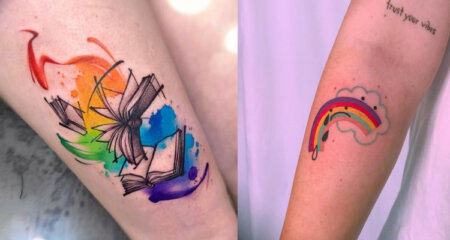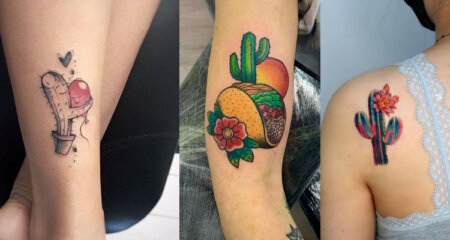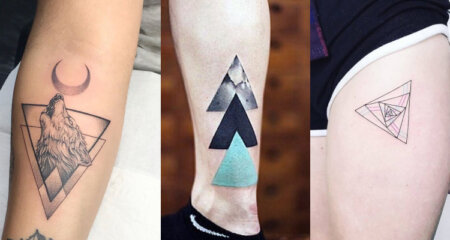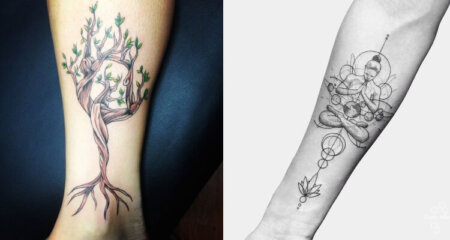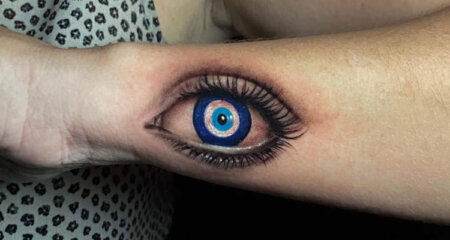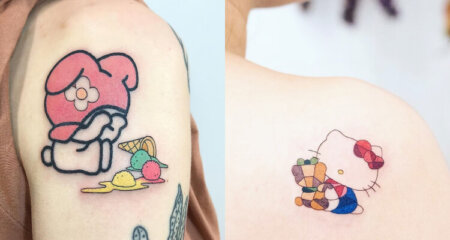
Tattoos Itch And How to Stop Tattoo Itching
Posted on
Often people get itchy tattoos and the reason for that could be any from a natural healing process to a medical situation. Here in this post I am sharing with you the causes of itchy tattoo and treatment for the same.
Here we go…..
Our skin is the largest organ in the body that protect our body from outside or external attackers. But when a person gets a tattoo, it is internal, as the needle breaks the skin’s barrier to get in. Just like in the case of wound, in this case also, the skin begins its healing process.
While healing process it is normal if you have an itchy tattoo, or if there is some redness, swelling etc. Because during healing a minor itching and other symptoms are normal.
Minor itching from a new tattoo usually go away on its own. But if there is a persistent itching or other symptoms on your new or old tattoo, you should definitely see a doctor.
Itchy Tattoo is Normal During Healing Process
It is normal to get a mild itching after getting a tattoo and during the healing process.
A tattoo involves breaking of the skin, due to which the body heals itself and repair the wound the same way it does in the case of other cuts and scratches. Therefore, minor itching is part of the tattoo healing process.
However, it is important that you keep an eye on your tattoo just to ensure proper healing. Because if you feel some other problem or if your itching gets worse, then it may be a sign that you need to visit your doctor.
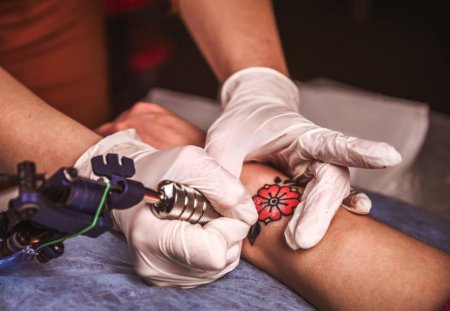
Normal Healing Procedure
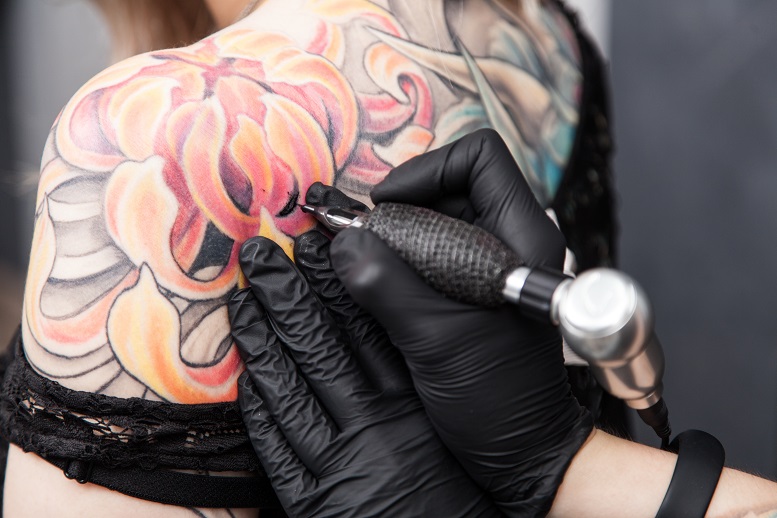
Once you get a tattoo, your skin naturally starts to form scabs and heal itself. While formation is scabs skin feel itchy that irritates. All you have to do is to control the urge to scratch, as scratching your new tattoo can cause more irritation and even lead to infection.
Also, scratching can remove scabs too early, which may result in scarring. Not just that, scratching your tattoo can actually distort it, resulting to the ruined artwork. That’s the reason it is said that tattoo’s aftercare is a MUST and follow your tattoo artist’s instructions religiously. Usually the itching subsides in a week or two, still you need to:
- Apply ointments or creams that is recommended by your tattoo artist.
- Visit a doctor if your itchy tattoo gets worse.
This is in normal cases, but there are some other cases, wherein a person feels too much itching, which are not normal of course. What are those situations, let’s see……
What Is Causing The Itching?
Allergic Reaction on Tattoo
Some people even suffer allergic reactions to tattoo because of the ingredients present in a tattoo ink.
Not necessarily an allergic reaction will occur immediately after getting the tattoo, sometimes an allergic reaction can occur months or years after getting a tattoo. Some people may develop an allergy due to a specific color of ink – old tattoo raised and itchy or itchy tattoo after a year.
Though any color can cause an allergic reaction, but researches show that red ink causes the most allergic reactions.
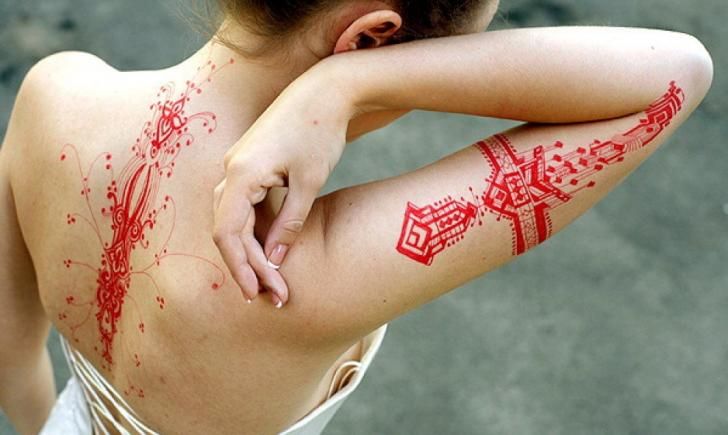
And the reason for red causing more allergic reactions is – red tattoo pigments contain toxic metals, such as aluminum, calcium and iron. These metals probably trigger allergic reactions, like contact dermatitis. Besides, some medical procedures such as, HIV treatment or a joint replacement surgery, can also lead to an allergic reaction, even in an old tattoo.
Symptoms of a mild allergic reaction include:
- Itching
- Pimple-like bumps
- Blisters
- Redness
- Flaking or crusting
- Raised & scaly skin
- Clear fluid coming from the tattoo
More often than not, a mild allergic reaction goes away on its own. But, if it does not get any better within a few days of its occurrence, it is recommended to see a doctor.
One can even suffer a severe allergic reaction, which can be life threatening. And if a person suffers a severe allergic reactions such as: dizziness, trouble breathing, hives, fast heart rate, severe swelling, and chest tightness, it is recommended that a person visit a doctor without losing a minute.
Tattoo Infection
Another reason for itchy tattoo is infection. Infection in a tattoo can occur due to the carelessness of your tattoo artist. Therefore, it is always recommended to go to a good tattoo studio. As, good tattoo studios ensure use of healthy tattooing procedures. It is important that a tattooist uses only sterile, single-use or sterilized, instruments. If he/she fails to do so, you are more likely to get a tattoo infection.
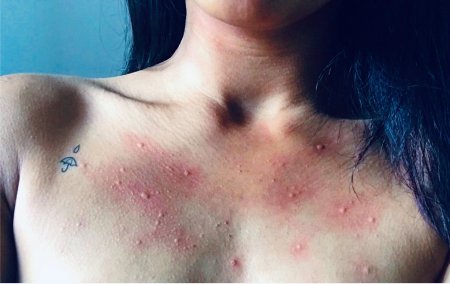
Tattooist using non-sterile instruments or ink can introduce bacteria or other harmful organisms into your skin. Also, it is important that the tattoo artist does not mix non-sterile ingredients into the ink, such as tap water. This can lead to severe infection. Therefore, it is crucial that you go to a good tattoo studio and ask them about their sterilization practices before you agree to get a tattoo there.
Symptoms of a tattoo infection include:
- Redness on the area that spreads and gets worse
- Red streaks on the skin where the tattoo is
- Pain that does not get better
- Itchy and painful red bumps on the skin
- Fever
- Chills
If you suffer any of these, it is advised that you visit your doctor, as without treatment, a tattoo infection can even get worse and can possibly spread throughout the body.
Tattoo Allergy due to Sun
Believe it or not, some people even tend to develop an allergic reaction to sunlight. Sun allergy can happen just after getting the tattoo, if you do not cover your tattoo. The moment one gets a tattoo, a tattoo artist tells him/her to keep his/her tattoo covered whenever he/she go out or avoid direct sunlight on their tattoos. It is because the sun exposure can cause sun allergy, which is not good for the tattoo.
Symptoms of an allergic reaction due to sun exposure include:
- Blisters
- Redness
- Small, itchy bumps
- Hives
- Swelling
Therefore, avoid direct exposure to the sun after getting a tattoo. Keep the bandage on – that your tattooist has placed on your new tattoo for a few hours or the length of time your tattoo artist has advised. Also, for a few days you will need to cover your tattoo whenever you go out.
Once your itchy tattoo is completely healed, use a water resistant sunscreen of SPF 30 or higher whenever you are outside. You can ask your tattoo artist for sunscreen recommendations. Make sure you do not apply sunscreen until your tattoo artist ask you to do so.
Ink contamination
Besides, some people even develop symptoms from tattoo ink that’s been contaminated. Once can get itchy tattoo even if the ink is labeled “sterile.”
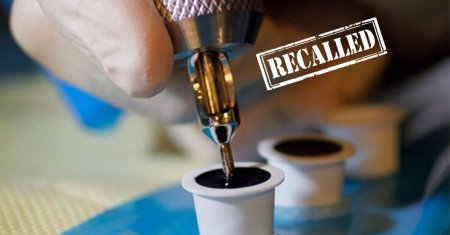
MRI reactions
Sometimes one can even get an itchy tattoo due to MRI (Magnetic Resonance Imaging) reactions. To diagnose certain health condition, doctors sometimes recommend MRI scans. In a rarest situations, an MRI scan can affect an old tattoo. Symptoms usually include itchiness along with swelling.
However, reactions due to MRI scan go away on their own after sometime without any further medical intervention.
Besides these, there are some medical conditions where one can have an itchy tattoo. Those conditions are:
Eczema
Eczema is a medical condition that causes inflamed, red, itchy, or cracked skin. There are a variety of responsible for eczema, including allergies, dryness, or irritants, such as fragrances. Tattoos do not trigger eczema. However, eczema could occur in the area where one has his/her tattoo even after a few months or years later.

So, people who already have eczema should speak to their doctors before they plan to get a tattoo. Also, they should speak to the tattoo artist about using inks for sensitive skin. Usually these tattoo studios provide aftercare instructions and an ointment for use during healing. But if they don’t, ask them for the same.
If an eczema develops on or around a new tattoo, immediately ask your tattoo artist about moisturizers that will prevent interference of the condition with the new ink. Also, make sure you use only fragrance or alcohol free products on your tattooed skin. As, fragrances simply make eczema worse. Most importantly, visit a doctor if you do not get any relief.
Psoriasis
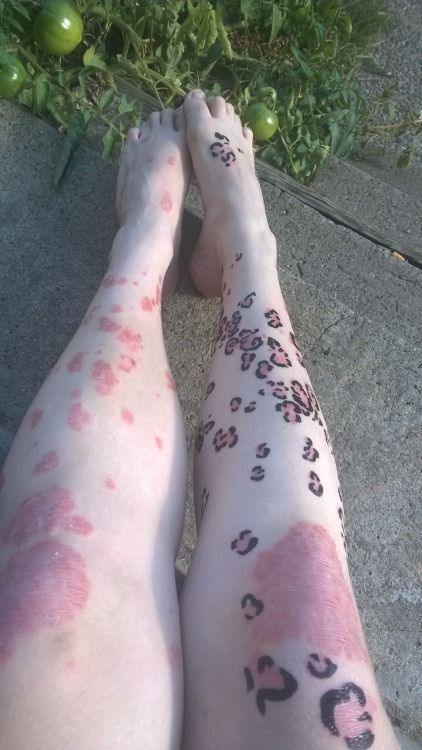
Psoriasis is an auto-immune disease, wherein the immune system attacks healthy skin cells. In this skin cells renew too quickly, which quite often results in red, scaly patches on the skin. These scales because of psoriasis are often itchy and painful. One of the known triggers of psoriasis is an injury to the skin. Studies show even small injuries, such as a needle prick from a vaccine, can even trigger psoriasis in some people.
And getting a tattoo involves too much use of a needle to pierce the skin, it is highly likely that one witness psoriasis after a tattoo. So, it is crucial that people who have a tattoo and have symptoms of psoriasis should visit a doctor. It is very much treatable with topical creams and other medications.
Sarcoidosis
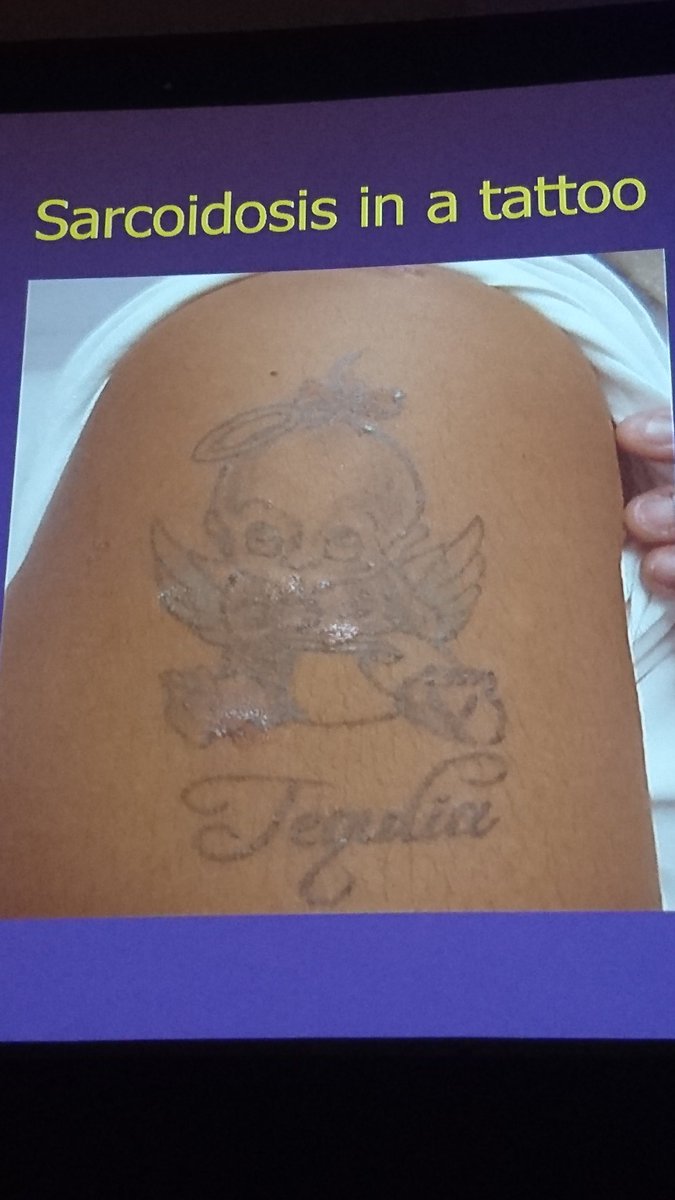
Sarcoidosis is a condition that usually affects older tattoos. Like Psoriasis, it is also an auto-immune condition, which can occur decades later, and can even affect internal organs. While not necessarily directly related to tattoo ink, but Sarcoidosis is known to cause extreme itching and inflammation in old tattoos. So, one can even have itchy tattoo after years.
Skin cancer
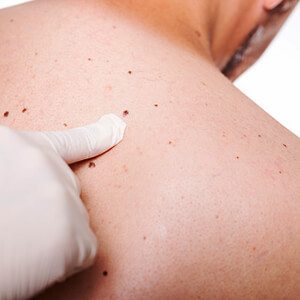
It is another medical condition that can cause itchy tattoo. However, there is no direct link between tattoos and skin cancer. Skin cancer can appear anywhere on the skin, including the areas that have tattoos, and the symptom of skin cancer includes an itchy, reddish patch on the skin. If a person notices itching along with the changes to the skin in the area of a tattoo, they should immediately see a doctor for a skin cancer check.
People with pre-existing medical conditions should always take advice from their doctors before getting a tattoo. Also, it is very important that they ask their tattoo artists also about their practices, whether they use sterilized instrument or not.
Also Read: Tips To Avoid A Tattoo Infection
Treatment and when to see a doctor
Addressing the itchy tattoo will depend on the cause of the itching.
For instance, a person with pre-existing skin condition such as eczema or psoriasis may need to see a doctor to get treatment for these conditions. And an infection may require immediate medical care.
However, it is crucial that one follows proper aftercare procedure that allows a new tattoo to heal properly and quickly. Usually a person needs to:
- Avoid scratching the tattoo
- Avoid picking at scabs
- Avoid scrubbing and using washcloths on the area of the tattoo.
- Apply creams or ointments that are recommended by their tattoo artist.
- Keep their creams or ointments in the refrigerator, as the cooling may help with itching
- Avoid using any harsh or irritating or alcohol based products on the tattoo
- Keep the tattoo protected from direct sun exposure.
- Avoid bathing or swimming for a long time.
- Take medicines for a mild allergic reaction.
In case if severe condition such as itching worsening, no improvement after a few weeks, redness increasing in severity, fever, oozing, severe swelling, scaling, etc. it is recommended to visit a doctor.
Final Verdict
An itchy tattoo is common, especially when it’s new. More often than not, the skin heals naturally by itself after a wound, and a tattoo is also a wound. Healing process usually causes itching, just like in case of any other wound.
Besides, people who experience continuous itching on their tattoo should try to identify the cause of the itchy tattoo and get the treatment accordingly. And if you find it getting worse, then visiting a doctor is wise.
Also, to avoid all these in the first place, it is always good to find out what type of hygiene standard a specific tattoo studio uses, before you step in the studio. Always make sure that the tattoo studio where you decide to get your tattoo design from practices the highest level of hygiene.
Getting your tattoo done by some random artists other than a professional tattoo artist is a big NO-NO. As, it can be highly unsafe for you. It is indispensable to have your tattoo done in a professional tattoo studio only, where there are sterile conditions, equipment, and professional tattoo artists who follow safe tattooing practices. Getting a tattoo from someone unprofessional can really be a dangerous practice that can even lead to itching, infection, allergy or any other severe condition.
Happy Tattooing!!

